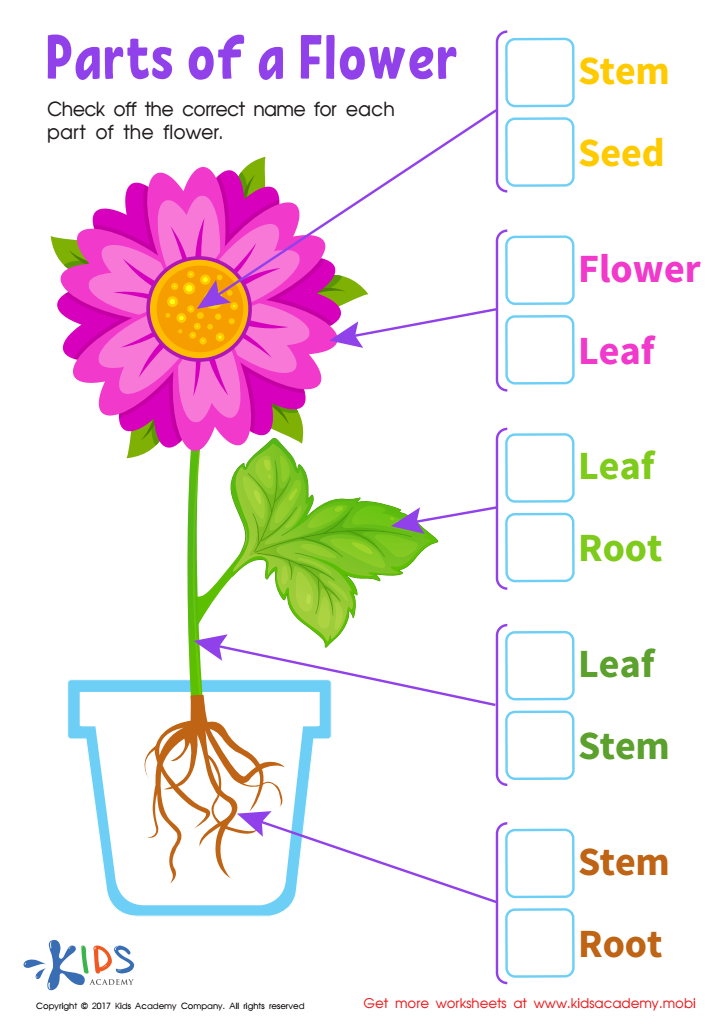Life Science Worksheets for Ages 4-7
3 filtered results
-
From - To
Discover engaging Life Science worksheets designed for children aged 4-7! Our collection helps young learners explore the wonders of the natural world, promoting curiosity about plants, animals, and ecosystems. With colorful illustrations and age-appropriate activities, these worksheets make learning fun and interactive. Whether it's identifying habitats, understanding plant growth, or exploring the life cycles of different animals, each worksheet encourages critical thinking and fosters a love for science. Perfect for classrooms or at-home learning, our Life Science worksheets support early education standards and inspire a lifelong fascination with discovery. Dive into the world around us with educational adventures today!


Parts Flower Printable


Herbivores Printable


Carnivores Worksheet
Life science is pivotal for children aged 4-7, as it lays the foundation for essential understanding about the world around them. At this age, children are naturally curious, and life science nurtures that curiosity, encouraging them to explore the living organisms that inhabit their environment. By engaging with life sciences, children learn about plants, animals, ecosystems, and human biology, fostering a sense of wonder and appreciation for nature.
Teachers and parents should care about integrating life science into early education because it enhances critical thinking and observational skills. When children learn to ask questions, make predictions, and conduct simple experiments, they develop inquiry-based learning habits that extend beyond the classroom.
Moreover, life science education promotes environmental stewardship. By understanding ecosystems and the interdependency of life forms, young learners cultivate a sense of responsibility towards the planet, encouraging them to protect their environment as they grow.
Additionally, life science education can aid in building social-emotional skills. Through group activities, children learn teamwork and empathy by discovering how different living beings interact. Overall, investing in life science education for young children is critical for their cognitive development, environmental consciousness, and lifelong love of learning.
 Assign to My Students
Assign to My Students















